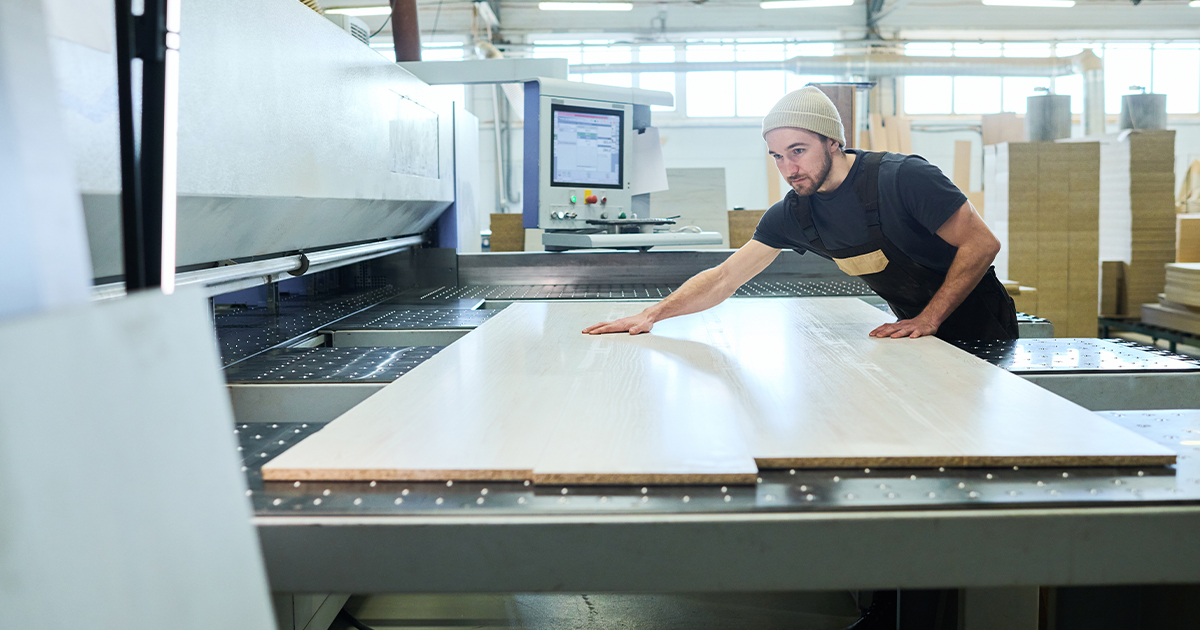
"In the case of all things which have several parts and in which the totality is not, as it were, a mere heap, but the whole is something besides the parts..." – Aristotle
More than likely, Aristotle never created anything using wood as a medium. He was too busy philosophizing and waxing poetic about logic and physics. We can, however, attribute to him an important axiom: "The whole is greater than the sum of its parts."
Fast forward 2,406 or so years, and Aristotle's early interpretation of wholes and sums apply to today's manufacturing practices more than he could’ve ever realized.
In a recent column for Woodworking Network, industry expert Don Shultz uses the popularized form of Aristotle’s quote to highlight the wood manufacturing sector's failure to connect its parts so that the whole can be greater. Shultz writes, "For many woodworking companies, their business processes operate in discrete functional silos. More importantly, the information that needs to flow between those silos often resides in isolated, disintegrated and incompatible applications. Instead of a system, we have an assortment of unmatched gears; gears neither driven nor driving."
It may come across as a daunting task to unite these unmatched gears through an effective system, but there are tools and systems specifically built to help companies within the wood manufacturing industry achieve integration and truly make the sum greater than its parts.
The right Enterprise Resource Planning (ERP) software incorporates the processes that you use today to deliver a complete manufacturing system that creates a seamless flow of information. And the benefits go beyond merely proving Aristotle’s theory correct.
Productivity

Reduction in production costs
With skilled labor shortages and supply chain issues still a concern, you can make the most of your people and material resources by optimizing your production processes through workflow automation, real-time tracking and alerts.
The benefits are staggering. For instance, 2020 Insight, our cloud-based ERP manufacturing software, can decrease your order processing costs by as much as 80 percent and reduce direct labor costs by over 10 percent.
Increase business agility
Without integration, the singular silos of information that Shultz refers to in his column result in bottlenecks, gaps, unnecessary rework, errors and production delays. This cacophony of processes compromises a business's agility and causes needless waste—from order entry all the way through order fulfillment.
No matter how large or small your woodworking operation is, with integration, you can make proactive adjustments and match your operational workflow with your shift's capabilities and material requirements. Through this, the right ERP software helps companies drastically increase custom design output, an ongoing issue for wood manufacturers.
Accelerate product time to market
Increase sales
The whole is better

It seems Aristotle may have been a man ahead of his time. A system that operates as a whole is indeed better than all its parts added together. It's hard not to imagine the philosopher looking favorably upon a woodworking manufacturing setting with an integrated and automated workflow, but we’ll leave you to speculate as to whether Aristotle might use the timed saved by an automated and integrated process to proffer a more profound treatise on the metaphysical properties of the modern factory.
Designed for cabinet, furniture and architectural millwork manufacturers, 2020 Insight goes beyond traditional ERP systems to deliver an end-to-end platform that connects your people and products with your processes. By making sure every aspect of your business is on the same page, it creates a seamless flow of information from the bid and order entry to final installation.
To learn more about how 2020 Insight's scalable editions and licensing options can fit in your business's short- and long-term plans, we’d love to offer you a demonstration of our software’s capabilities.
Share this Post




